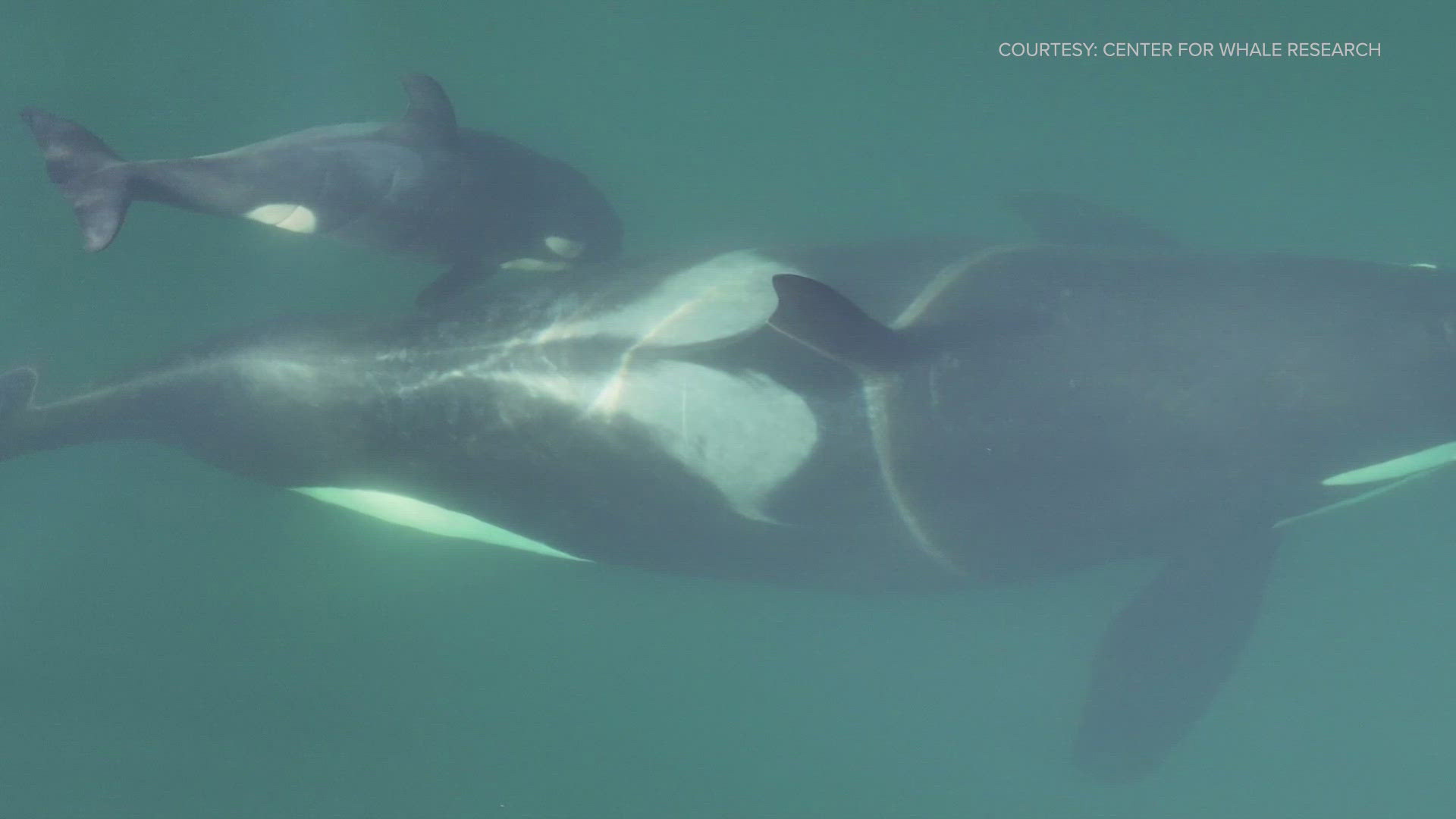ISLAND COUNTY, Wash. — A very young orca calf was spotted off the coast of San Juan Island Monday.
The calf is the newest member of the L pod subgroup.
According to the Center for Whale Research, the calf, L128 and its mother, L90, both look healthy and appear to be nursing normally.
Due to its "tiny" size and noticeable fetal folds, experts believe the calf could have been born as recently as three days ago.
The Center for Whale Research said it will continue to monitor the mother and calf while they are in the area.
The pair was first spotted in the Strait of Georgia on Friday, Sept. 13. Then, as they made their way south, they were spotted again off Vancouver Island, BC on Sunday. Shortly after, they were seen on the west side of San Juan Island.
Center for Whale Research crews went to search for them and found them again on Monday, still on their own and appeared healthy.
Southern Resident Killer Whale population decline
The Southern Resident Killer Whale population has declined steadily over the last 40 years. If the SRKW population can grow to 80-90 whales in the next 50 years, they could recover.
Experts say action needs to be taken now to correct the three big factors contributing to the decline: a lack of food, specifically Chinook salmon; noise interfering with the orcas' hunting abilities; and contaminants in the water and food impacting their health.
Leaders have taken steps to try to combat some of these problems.
On Jan. 1, 2025, a new law will go into effect in Washington that requires at least 1,000 yards of distance between boaters and orcas.
Rob Williams, co-founder of nonprofit Oceans Initiative, said other options to improve conditions for Southern Residents could involve reducing the Chinook salmon harvest, increasing hatchery production or scaling back Chinook salmon fishing in the open ocean to leave them for the orcas.

